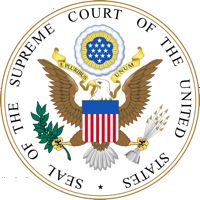 In a privacy ruling certain to affect distracted driving enforcement, the U.S. Supreme Court says police must have search warrants in order to examine the cell phones of those they arrest.
In a privacy ruling certain to affect distracted driving enforcement, the U.S. Supreme Court says police must have search warrants in order to examine the cell phones of those they arrest.
The justices’ cell phone ruling of June 25 said: “The police generally may not, without a warrant, search digital information on a cell phone seized from an individual who has been arrested.”
The Fourth Amendment ruling was seen as a pivotal decision in the broad area of digital privacy. It did not specifically address distracted driving cases but clearly would apply to them.
Police who seek to search a cell phone to determine if a driver was texting or talking at the time of an accident almost certainly will have to seek a warrant.
Records of calls and texts made on cell phones and smartphones often are used as evidence in gaining convictions in serious distracted driving cases. But wireless communications devices also are examined during some routine stops in which texting, surfing the web or talking on a handheld cell phone are suspected.
In addition to fewer convictions, the ruling may result in underreporting of distracted driving incidents because police generally would not seek a warrant unless a death or significant injury was involved.
States have struggled with the issue of whether police may seize or search cell phones when electronic distracted driving is suspected in a crash. Some states have laws that specifically bar law enforcement officers from viewing or taking drivers’ electronic devices. For example, the South Carolina texting law adopted in June states that police may not “seize, search, view, or require the forfeiture of a wireless electronic communication device because of a (texting) violation.”
The high court noted that such a policy would allow destruction of evidence, such as wiping clean a record of text messages or phone calls. “Law enforcement currently has some technologies of its own for combating the loss of evidence,” the justices said.
The Supreme Court said intrusion into the lives of arrestees could be significant: “Today many of the more than 90% of American adults who own cell phones keep on their person a digital record of nearly every aspect of their lives.”
The justices noted their ruling did not bar the searching of cell phones, just the searching without a court’s prior approval:
It is true that this decision will have some impact on the ability of law enforcement to combat crime. But the Court’s holding is not that the information on a cell phone is immune from search; it is that a warrant is generally required before a search.
“Privacy comes at a cost,” the ruling said.
The case, Riley v. California, concerned a police investigator’s search of a suspected gang member’s smartphone after he was arrested.


Ok so if a person meets an inmate on work detail and the police pulls up and say they got a tip that the civilian was going to be their a said that their are text messages between the inmate and the civilian can the police confiscated the civilian cell phone and investigate it??
If police pull over a person that they suspect of distracted driving (not arrested), and there was no accident. Can they search a phone?